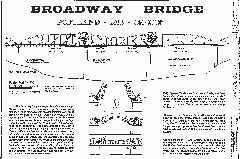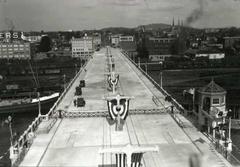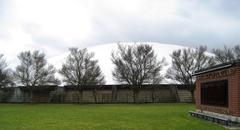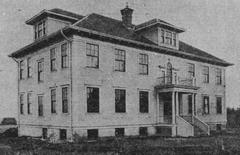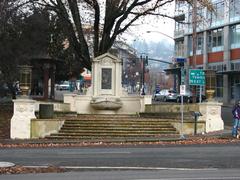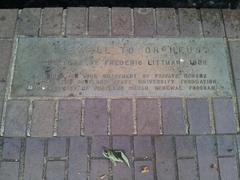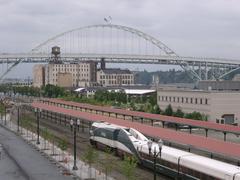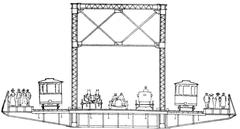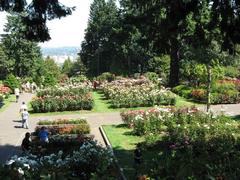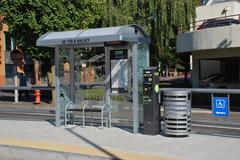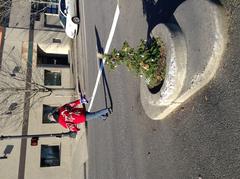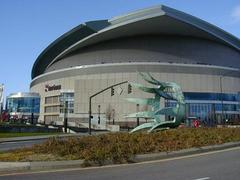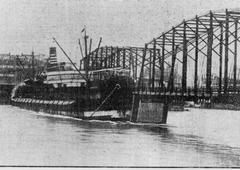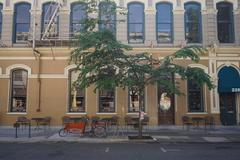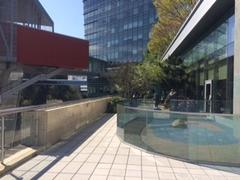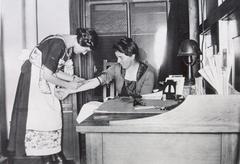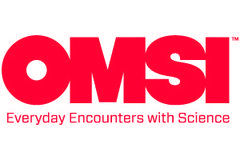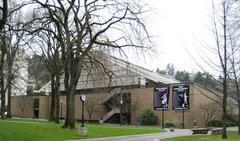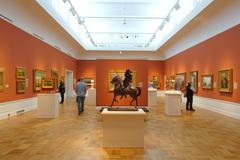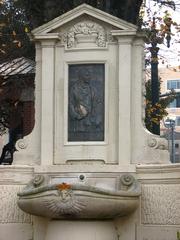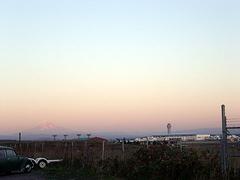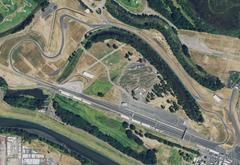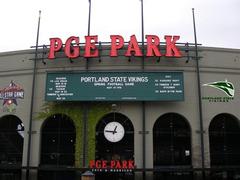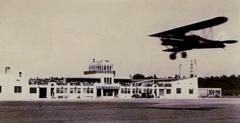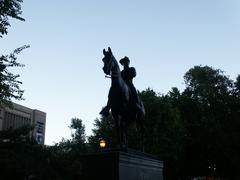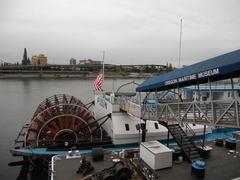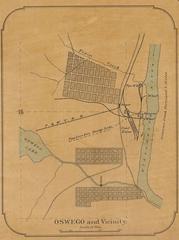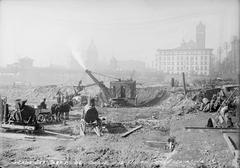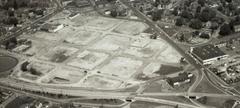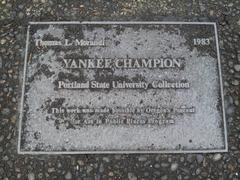Oregon College of Oriental Medicine Visiting Hours, Tickets, and Portland Historical Sites Guide
Date: 04/07/2025
Introduction: OCOM’s Legacy in Portland
The Oregon College of Oriental Medicine (OCOM) was a trailblazing institution for acupuncture and Oriental medicine, significantly shaping integrative healthcare in the United States. Established in 1983, OCOM became a leader in combining traditional Chinese medical theories with Western biomedical science, setting the standard for graduate-level education in this field. Its campus, located in Portland’s historic Old Town Chinatown, occupied the renovated Globe Hotel/Import Plaza building—a symbol of sustainability and holistic design, integrating feng shui and LEED Gold standards. OCOM not only provided advanced education but also served its community through vibrant teaching clinics and a renowned herbal dispensary. Although OCOM closed in 2024, its influence endures through its alumni and the cultural significance of its former site. This guide offers a comprehensive overview of OCOM’s history, visiting information, architectural highlights, and practical tips for exploring nearby Portland attractions. (OCOM Official Website, OregonLive, Travel Portland)
Table of Contents
- Introduction to OCOM and Its Significance
- Visitor Information: Hours, Admission, and Accessibility
- How to Visit: Location and Travel Tips
- Exploring Portland’s Historical Sites Nearby
- Special Events and Workshops
- Visual Highlights
- Frequently Asked Questions (FAQs)
- OCOM’s Educational Legacy and Closure
- Architectural and Environmental Highlights
- Visiting the Former OCOM Site: Historical Overview
- Summary and Resources
Visitor Information: Hours, Admission, and Accessibility
OCOM is permanently closed as of 2024. The following information reflects historical visiting details and options for engaging with the surrounding area:
- Former Visiting Hours: OCOM’s campus was typically open Monday–Friday, 8:00 AM–6:00 PM. The teaching clinic operated Monday–Saturday, with varying hours.
- Admission & Tickets: General campus visits were free. Fees applied for acupuncture and herbal medicine services at the teaching clinic (by appointment).
- Guided Tours: Tours were occasionally offered during special events and open houses, highlighting the campus’s sustainable design and educational mission.
- Accessibility: The campus was fully accessible, with ramps, elevators, and accessible restrooms.
- Current Status: The campus is no longer open to the public. Those interested in the building’s architectural significance may view it from the exterior.
How to Visit: Location and Travel Tips
- Address: 75 NW Couch Street, Portland, Oregon 97209
- Getting There: The site is accessible by public transit, including MAX light rail and bus lines. Limited street parking is available; biking and walking are encouraged in this pedestrian-friendly area.
- Nearby Parking: Options exist in adjacent garages, but public transit is recommended due to limited street parking.
Exploring Portland’s Historical Sites Nearby
Even though OCOM is no longer open, the surrounding Old Town Chinatown neighborhood offers a wealth of cultural and historical attractions:
- Lan Su Chinese Garden: An authentic classical Chinese garden and cultural center (Lan Su Chinese Garden).
- Portland Saturday Market: One of the country’s largest open-air markets, featuring local crafts and food.
- Chinatown Gate: A signature landmark celebrating Portland’s Chinese heritage.
- Pioneer Courthouse Square: A central public space hosting events, dining, and shopping.
- Portland Art Museum: Extensive collections of regional and international art.
For more ideas, see Travel Portland’s guide to historic sites.
Special Events and Workshops
While OCOM no longer hosts public events, the neighborhood remains lively with workshops, cultural festivals, and wellness events at various community centers and gardens. For current opportunities, visit the Travel Portland events page.
Visual Highlights
- OCOM’s former home, the restored Globe Hotel/Import Plaza building, stands as a testament to Portland’s architectural preservation.
- The building’s exterior features preserved brickwork and period windows.
- Public art installations and historic signage, including the rooftop Import Plaza sign, remain visible.
Suggested image alt tags: “Historic Globe Hotel/Import Plaza Building exterior, former home of OCOM,” “Old Town Chinatown street view near Lan Su Chinese Garden.”
Frequently Asked Questions (FAQs)
Q: Can I visit or tour the OCOM campus?
A: No. OCOM closed in 2024, and the campus is no longer open for public tours.
Q: Are there still acupuncture clinics at OCOM’s former location?
A: No, but many licensed acupuncturists and wellness clinics operate throughout Portland.
Q: Where can I learn about Chinese medicine in Portland now?
A: The National University of Natural Medicine and other educational institutions continue to offer acupuncture and integrative health programs.
Q: Is the site still accessible for viewing?
A: The exterior of the former OCOM building can be viewed from the street; access to the interior is restricted.
OCOM’s Educational Legacy and Closure
OCOM played a pioneering role in U.S. acupuncture and Oriental medicine education, offering accredited Master’s and Doctoral degrees and producing over 1,500 alumni practicing nationwide. Its teaching clinics provided affordable care, with a strong focus on health equity and community outreach. OCOM’s research partnerships, particularly with OHSU and regional healthcare providers, advanced the evidence base for acupuncture and herbal medicine.
Despite its impact, OCOM faced challenges including declining enrollment, rising operational costs, the COVID-19 pandemic, and social issues in Old Town. These pressures led to the Board of Trustees voting for closure in May 2024. The final cohort graduated in August 2024. Students had transfer options to institutions such as the National University of Natural Medicine and Five Branches University (Oregon Higher Education Coordinating Commission).
Architectural and Environmental Highlights
- Historic Globe Hotel/Import Plaza: The building is a rare example of late 19th-century commercial architecture, renovated for modern use and sustainability (OregonLive).
- Feng Shui Design: Renowned consultant Alex Stark guided the integration of feng shui, optimizing energy flow and wellness.
- LEED Gold Certification: The renovation highlighted OCOM’s commitment to environmental responsibility.
Visiting the Former OCOM Site: Historical Overview
Although interior access is no longer possible, the site remains a point of historic interest. The Old Town Chinatown neighborhood offers insight into Portland’s immigrant heritage, architectural evolution, and commitment to integrative health. Visitors are encouraged to explore nearby gardens, markets, and museums.
For more information on the current status of the site or public access, consult the Oregon Higher Education Coordinating Commission.
Summary and Call to Action
The Oregon College of Oriental Medicine’s legacy includes decades of leadership in acupuncture education, community health, and cultural preservation. Though the college has closed, its former site and the surrounding Old Town Chinatown neighborhood remain rich in history and culture. Visitors to Portland are encouraged to explore these landmarks, learn about the city’s multicultural heritage, and engage with ongoing community events.
For the most up-to-date information on Portland historical sites, self-guided tours, and cultural events, download the Audiala app and follow local tourism resources.
References
- OCOM Official Website
- OCOM Clinic Hours
- OCOM News & Events
- OregonLive: OCOM History and Architecture
- ExploreBestColleges: OCOM Location
- Oregon Higher Education Coordinating Commission
- Travel Portland: Historic Sites
- Lan Su Chinese Garden
